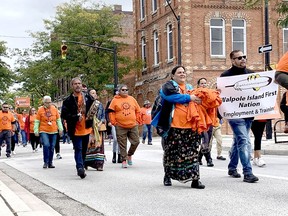Tracing Back: History of Education and Culture
The history of education and culture stands as a testament to the intricate dance between knowledge dissemination and societal values that has woven through the tapestry of human existence since ancient times. Exploring this historical journey unveils the profound impact of cultural beliefs, norms, and practices on educational systems and vice versa.
Table of Contents
ToggleEarliest Foundations
The history of education and culture finds its roots intertwined in the earliest civilizations. Ancient cultures, such as the Mesopotamians, Egyptians, and Greeks, laid the foundational stones for structured learning, often deeply entwined with their cultural practices. Education was imparted to preserve cultural heritage, pass down traditions, and nurture societal roles.
The Greek Influence
The Greeks, notably, held education in high regard, where the connection between education and culture was palpable. For them, education transcended rote learning; it was a means to cultivate virtues, critical thinking, and civic responsibility. Philosophers like Socrates, Plato, and Aristotle shaped not only educational methodologies but also the cultural ethos of inquiry and rationality.
The Influence of Islamic Civilization
In the medieval period, the Islamic world was a torchbearer of scholarship and knowledge dissemination, where education was an integral part of cultural identity. The House of Wisdom in Baghdad, for instance, was a beacon of learning, preserving and translating ancient texts from various cultures, fostering an era of cultural exchange and advancement in sciences, arts, and philosophy.
Renaissance and Enlightenment
The history of education and culture witnessed significant upheavals during the Renaissance and Enlightenment periods. The Renaissance, with its revival of classical learning, sparked a renewed interest in arts, literature, and humanism. Meanwhile, the Enlightenment emphasized reason, individualism, and the pursuit of knowledge, influencing educational philosophies that sought to align with these cultural shifts.
Colonial Era and Cultural Influence
The colonial era marked a significant juncture in the history of education and culture. Colonial powers introduced their educational systems to colonies, often aiming to instill their cultural norms and values. This intersection led to a hybridization of cultures, shaping educational paradigms that reflected both indigenous and colonial influences.
Modern Education and Globalization
The evolution of education in the modern era is closely entwined with globalization. Rapid advancements in communication, technology, and trade have created a global cultural exchange. Education has transformed into a multifaceted tapestry where diverse cultures intersect, influencing curricula, teaching methodologies, and fostering a global perspective among learners.
Challenges and Transformations
Amidst the historical evolution lies a series of challenges and transformations in the history of education and culture. Societal changes, wars, political ideologies, and technological revolutions have continuously reshaped educational systems, sometimes challenging traditional cultural norms and fostering new ones.
Contemporary Landscape
In the contemporary landscape, education has evolved into a platform for celebrating diversity and fostering cultural understanding. Efforts toward multicultural education, inclusive curricula, and intercultural exchange programs emphasize the importance of acknowledging diverse cultural perspectives in learning environments.
Future Trajectories
Looking ahead, the history of education and culture guides us to contemplate future trajectories. As we navigate an increasingly interconnected world, the fusion of education and culture will continue to influence societal dynamics. Embracing cultural diversity within educational frameworks will be pivotal in nurturing global citizens who appreciate, respect, and celebrate differences.
In essence, the history of education and culture narrates a saga of intertwined destinies. It delineates a journey where education doesn’t merely exist in cultural contexts but is a manifestation of culture itself, shaping identities, ideologies, and the collective intellectual heritage of humanity.



